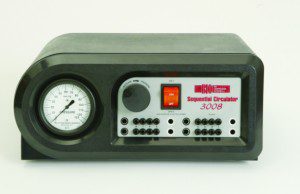 A common challenge faced in the medical field is finding the cause of an individual’s limb swelling. Any limb swelling may be your body’s way of letting you know there is a potential underlying condition that can cause even more damage if left untreated. When swelling in a limb becomes chronic, pinpointing the origin is vital to getting proper treatment. Some of the most common diagnosis are venous insufficiency and lymphedema.
A common challenge faced in the medical field is finding the cause of an individual’s limb swelling. Any limb swelling may be your body’s way of letting you know there is a potential underlying condition that can cause even more damage if left untreated. When swelling in a limb becomes chronic, pinpointing the origin is vital to getting proper treatment. Some of the most common diagnosis are venous insufficiency and lymphedema.Fluid accumulation can cause painful swelling, non-healing wounds, heaviness, and discomfort decreasing your mobility. Recent studies show that nearly 7 million people in the United States suffer from venous disease. While 2 to 3 Americans suffer from secondary lymphedema.
Chronic venous insufficiency (CVI) is when blood is unable to circulate from the lower limbs back to the heart. CVI is caused by incompetent valves and venous hypertension, in both parts of your venous system. The venous system is comprised of two parts, deep circulation and superficial circulation which are interconnected by perforating veins. Your venous system is an important component to delivering blood to the heart, then passing it through the lungs to obtain oxygen. The oxygenated blood is then delivered to the lower limbs.
Venous hypertension leads to secondary Lymphedema from the lymphatic system’s inability to keep up with an abnormally high demand of protein rich fluid. Lymphedema is chronic swelling from protein-rich fluid accumulation in the tissue. Lymphedema occurs secondary to CVI when the lymphatic system is obstructed causing damage, blockage, or abnormal development. Primary Lymphedema can be hereditary or congenital, where an individual is born with a compromised lymphatic system.
Risk Factors
Once your circulatory system has been obstructed leading to venous insufficiency or lymphedema this may lead to an interruption in the venous and lymphatic flow. Both diseases are manageable and treatable however there is no cure for either one.
Risk factors may include:
• Unknown swelling of a limb
• Family history
• Invasive surgical procedure i.e. radical
cancer surgery
• Chronic open wounds
• Decreased mobility
• Infections such as cellulitus/ lymphangitis
• Skin changes such as discoloration or hardening
Management: Compression Pump
Understanding the ongoing management of both venous insufficiency and lymphedema are important in preventing irreversible damage to the body. Compression therapy along with proper nutrition a healthy diet and exercise are the foundation of a treatment plan. Compression stockings are often difficult to get on with little results for chronic swelling. Diuretics may be harmful for long-term treatment. Compression devices are widely recognized and highly effective treatment. This is a safe and effective way to assist your body’s circulatory system in moving the excess fluid which has accumulated in the limb.
A pneumatic compression device mimic’s the muscle contraction that naturally occurs when performing a cardiovascular activity. A compression device is used for both acute care (short term in the hospital) as well as chronic care (long term in the home). The compression pump increases blood flow and lymphatic flow. By increasing the circulation in the affected limb many painful symptoms will be alleviated. When compression treatment is used on a limb the excess fluid is removed and worked back into the lymphatic system the natural way. For patients with chronic ulcers using a compression device will help heal the wound from the inside out, by increasing the circulation in the return of the blood from the heart. The heart delivers oxygen rich blood back to the legs and the tissue speeding the recovery time.
For patients who many have Chronic venous insufficiency a test called a vascular or duplex ultrasound may be used to examine the blood circulation in your legs.
The compression pump is approved by Medicare and covered by many commercial insurers; Actual coverage varies with individual commercial insurance policies. Acute Wound Care, LLC is a highly focused local provider of wound products and compression pumps working with select area physicians highly versed in treating swollen limbs and chronic wounds.
Contact Acute Wound Care today by calling 239-949-4412 to learn more about the benefits of compression devices and the other in-home services available.
 Central Florida Health and Wellness Magazine Health and Wellness Articles of the Villages
Central Florida Health and Wellness Magazine Health and Wellness Articles of the Villages



